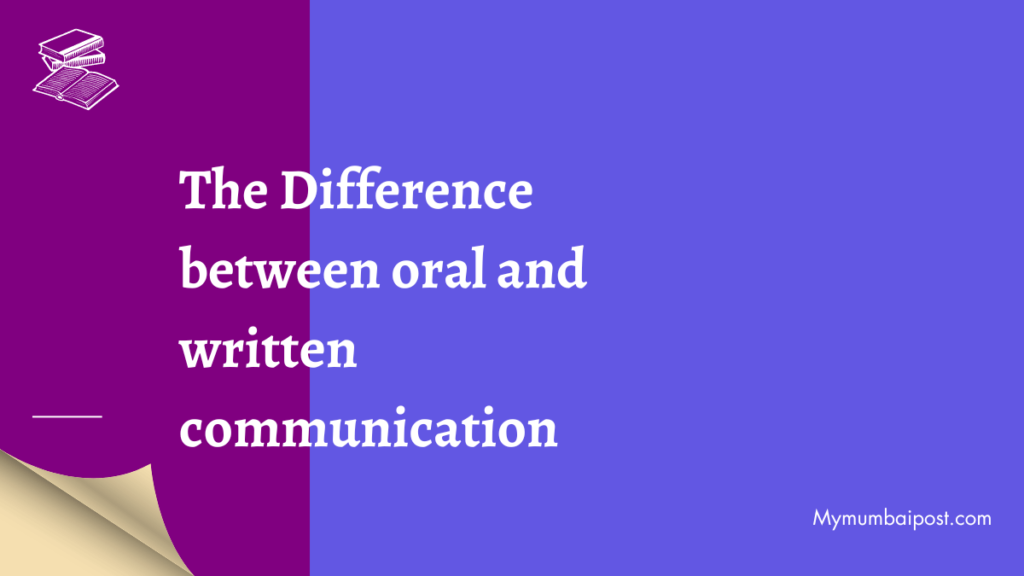
Understand the Difference between oral and written communication
Welcome to an exploration of the nuances of human communication. In this article, we delve into the fundamental difference between oral and written communication, examining how each medium impacts the transmission and reception of information.
15 Difference between oral and written communication
Oral and written communication are two fundamental modes of communication used in various settings, such as business, education, and personal interactions. While both modes of communication serve the same purpose of conveying information, they differ in several ways. Here are 15 difference between oral and written communication.
Oral communication is immediate and interactive, while written communication is delayed and non-interactive.
Oral communication uses spoken language, while written communication uses written language.
Oral communication involves verbal and nonverbal cues, while written communication only involves written words.
Oral communication can convey emotions and tone more effectively than written communication.
Also Read: Explore Key 15 Difference between Highway and Expressway
Written communication allows for more precise and structured language than oral communication.
Oral communication allows for immediate feedback and clarification, while written communication does not.
Written communication can be reviewed and edited before being shared, while oral communication cannot.
Written communication can be distributed to a wider audience than oral communication.
Written communication is more permanent and can be used as a reference in the future.
Also Read: Explore 15 Key Difference between half wave and full wave rectifier
Oral communication is more informal and conversational, while written communication is more formal and structured.
Oral communication can be affected by environmental factors, such as background noise or distractions, while written
communication is not.
Written communication can be translated into multiple languages, while oral communication is limited by language barriers.
Also Read: Discover Ten Key Difference between light reaction and dark reaction
Oral communication allows for the use of gestures and facial expressions to convey meaning, while written communication does
not.
Written communication can be more efficient in conveying complex information than oral communication.
Oral communication is more personal and can build stronger relationships between individuals than written communication.
Both oral and written communication have their strengths and weaknesses. Depending on the situation, one mode of communication may be more appropriate than the other. It is important to understand the differences between oral and written communication to effectively communicate in different situations.
Explore this video to learn more